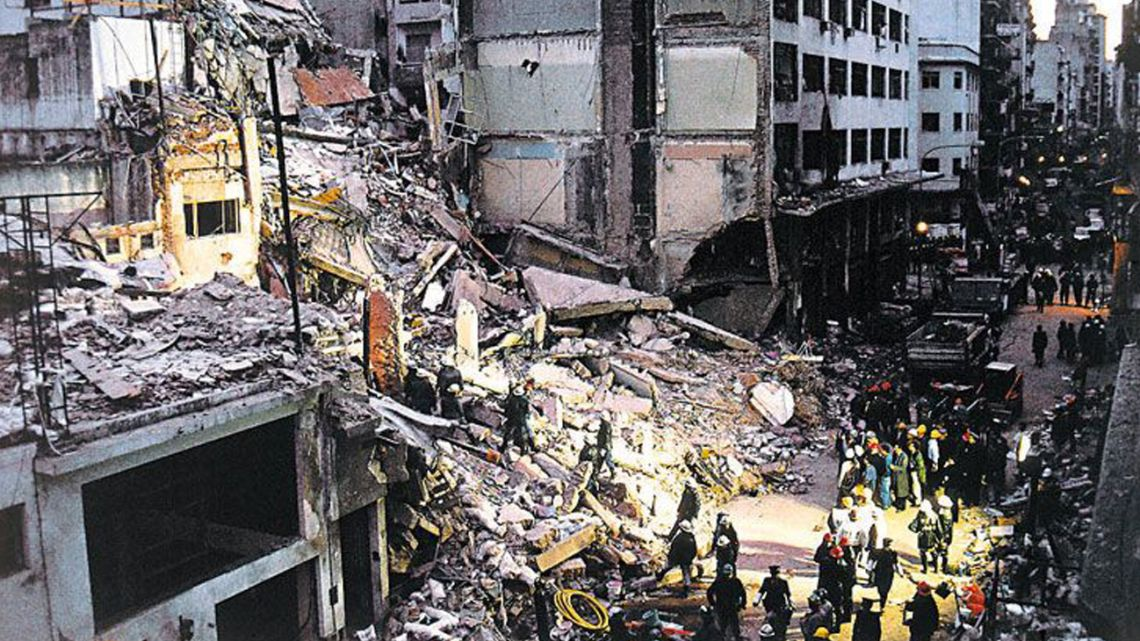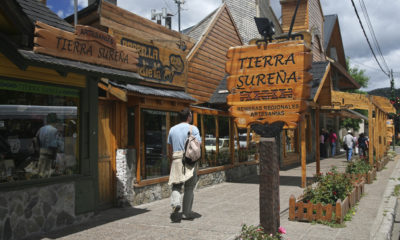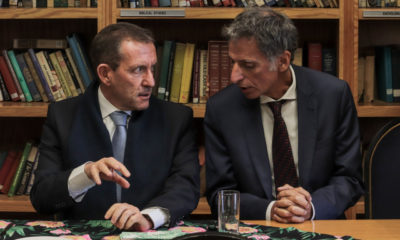
OpEds

Lessons from AMIA bombing – more relevant than ever
A calm July winter morning in Buenos Aires turned into a nightmare when a suicide bomber drove a car laden with hundreds of kilograms of explosives into the Jewish community’s Asociación Mutual Israelita Argentina (AMIA) building.
Eighty-five people were brutally murdered and hundreds injured that day – the single deadliest antisemitic attack in more than half a century. For several days following the explosion on 18 July 1994, survivors were trapped under the rubble, fighting for their lives.
This was the second attack against Jewish and Israeli targets on Argentinian soil, after the Israeli embassy in Buenos Aires was attacked just two years earlier in 1992. Twenty-nine innocent civilians were killed and scores seriously injured.
The AMIA bombing foreshadowed a wave of global terror that has swept the world and, tragically, has only escalated in the decades since.
Adding to the heartbreak of the bombing itself, and the attack that proceeded it, is the fact that in spite of the concerted efforts of the Argentine authorities and local Jewish community, the perpetrators of this horrifying violence haven’t been brought to justice.
In 2003, judicial investigators found enough evidence to show that the Iranian government had ordered and financed the terrorist attack, which Hezbollah then executed. Two trials have followed since the bombing and, in spite of Interpol red alerts being put in place, no-one has been jailed or convicted.
In a shocking turn of events, Albert Nisman, the main prosecutor in the case who led the special investigation into the bombing and subsequent judicial cover-up, was found dead in his home on 19 January 2015, just one day before he was to testify in the Argentine Congress on the case.
Twenty-five years after the AMIA bombing, Argentina officially designated Hezbollah a terrorist organisation and froze all assets linked to it. This was the first designation of Hezbollah as a terrorist group in Latin America, and other states soon followed, including Colombia, Paraguay, Honduras, and Guatemala.
In South Africa, the AMIA bombing had a significant impact on our own Jewish community. The attack was a sobering wake-up call to diaspora Jewish communities around the world that all Jewish community buildings and institutions could be targets of terror. Various safety and security measures for South African Jewish installations were put in place following the bombing and, sadly, the need for these measures to protect our local community remains ever present.
In 2016, the leadership of the South African Jewish Board of Deputies (SAJBD) travelled to Argentina to be part of AMIA bombing commemorations. Wendy Kahn, the national director of the SAJBD, recalls hearing from survivor Daniel Pomerantz who witnessed the AMIA centre collapse following the explosion. “The darkness, the screams, the pain, the horror,” Daniel shared. These harrowing memories have never left him. Kahn was deeply moved to be in a community that had lost so much to terror and violence, but remained determined to continue to live and celebrate Jewish life and not give in to fear.
For the 25th anniversary of the attack, the SAJBD held a moving event in Johannesburg with the Argentinian ambassador to South Africa. Screening a film on the bombing and sharing an interview with a survivor, the commemoration brought home the horror of terror attacks and lives forever changed.
Thirty years since that dreadful day, the calls for justice continue. The Latin American Jewish Congress and the World Jewish Congress have called on the international community to commemorate the AMIA bombing by organising events to honour the victims. They also call for the designation of Hezbollah in its entirety, both its political and military wings, as a terrorist organisation. And, they have condemned the Islamic Republic of Iran as the world’s leading state-sponsor of terrorism and for the destabilising role it plays not only in Latin America and the Middle East but globally. Iran continues to target Israel, financing and training Hamas terrorists in the lead-up to the 7 October massacre last year, in which 1 200 Israelis were slaughtered, and 250 men, women, and children were kidnapped from their homes and a music festival. In the case of Hezbollah, the World Jewish Congress points to the fact that it has launched thousands of rockets against Israel since 7 October, and Iran launched more than 300 drones and missiles targeting Israel during the night of 13 April 2024.
The lessons of the AMIA bombing are as relevant as ever: to pursue justice for the victims of terror no matter the obstacles and pressure faced; the dire need to strengthen international collaboration on counter-terrorism measures; and the importance of countries taking a strong stance against all forms of state-sponsored terrorism.
Three decades on from that terrible July morning in Buenos Aires, it’s more important than ever for international judicial bodies to bring the culprits to justice and for governments and citizens across the globe to root out and address the causes of terrorism. As Jewish communities face rising levels of antisemitism worldwide, while remembering those lives that were forever changed on 18 July 1994, let’s stand together with all innocent people targeted by terror based solely on their identity.
- Alana Pugh-Jones Baranov is a steering committee member of the World Jewish Congress’s Jewish Diplomatic Corps as well as the co-chairperson of its Women’s Representation Steering Committee.










